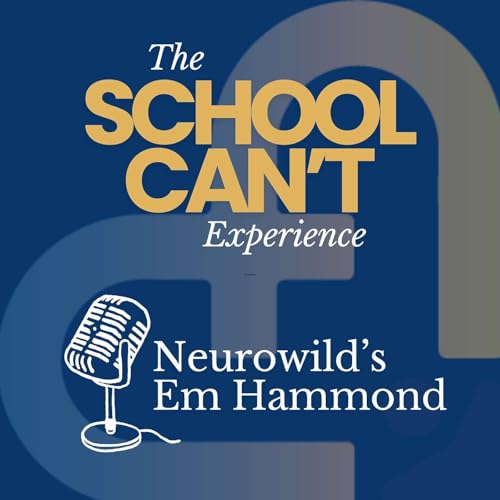In this episode, host Leisa Reichelt speaks with Hugh Viney, CEO of Minerva Virtual Academy (MVA), the UK’s fastest growing school that specifically caters to kids whose needs are not met by the mainstream school system.
MVA's unique model centers on a 'happiness first' ethos, providing a blend of self-directed online learning, live lessons, mentoring, and community activities. Hugh explains how MVA caters to diverse student needs, including those facing mental health challenges and neurodivergent learners, creating an educational environment where happiness and well-being are prioritized.
The conversation also touches upon the challenges and opportunities in setting up such a venture and the broader implications for the future of education.
00:00 Introduction to the School Can't Experience Podcast
01:28 Meet Hugh Viney: From Musician to Education Innovator
03:14 The Birth of Minerva Tutors: Tutoring for Happiness
05:44 COVID-19 and the Rise of Online Learning
07:25 Creating Minerva Virtual Academy: A New Kind of School
09:55 Navigating Bureaucracy: Accreditation and Recognition
15:15 A Day in the Life of an MVA Student
22:37 Exploring Online School Clubs and Activities
22:59 Building a Sense of Community in Online Schools
24:22 Addressing Student Safety and Belonging
25:36 Supporting Neurodivergent and Mental Health Needs
28:06 Challenges and Solutions in Online Education
33:46 Recruiting and Training Online Teaching Staff
36:53 Advice for Parents and Educators
39:02 The Future of Education: Choice and Flexibility
42:49 Conclusion and Final Thoughts
Recommended Resources
- Minerva Virtual Academy: https://www.minervavirtual.com/
- Hugh on LinkedIn: https://uk.linkedin.com/in/hugh-viney
- Hugh’s website & links to other social media: http://hughviney.com/
- Save Victorian Parent Helpline Petition: https://www.megaphone.org.au/petitions/save-parentline
Send us a text
Support the show
- School Can’t Australia Facebook Community - https://www.facebook.com/groups/schoolphobiaschoolrefusalaustralia
- Make a donation to School Can’t Australia - https://www.schoolcantaustralia.com.au/get-involved
If you are a parent of carer in Australia and experiencing distress, please call Lifeline on 13 11 14 or contact the Parent Help Line. - https://kidshelpline.com.au/parents/issues/how-parentline-can-help-you
You can contact us to volunteer to share your School Can't story or some feedback via email on schoolcantpodcast@gmail.com
Disclaimer
The content of this podcast is based on personal lived experiences and is shared for informational and storytelling purposes only. It should not be treated as medical, psychological, or professional advice under any circumstances. If you have concerns about your health or well-being, please seek guidance from a doctor, therapist, or other qualified professional.
 33 mins
33 mins 38 mins
38 mins Nov 10 202541 mins
Nov 10 202541 mins 45 mins
45 mins Oct 27 202543 mins
Oct 27 202543 mins 45 mins
45 mins Oct 13 202547 mins
Oct 13 202547 mins 42 mins
42 mins

